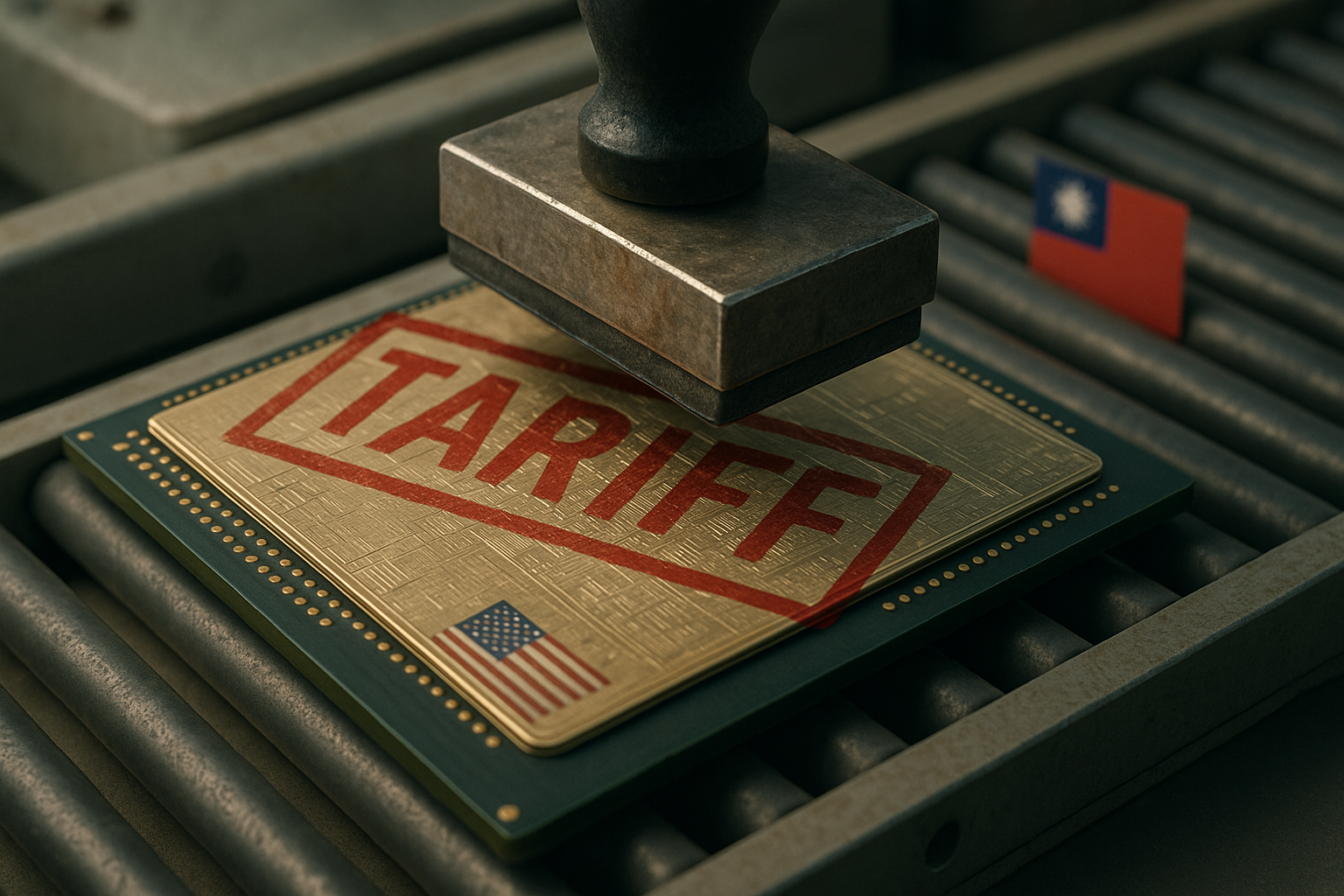So Trump wants to hit foreign chips with tariffs. Of course he does.
When the news dropped Tuesday that the former president plans to unveil semiconductor import duties "within the next week or so," the market did exactly what you'd expect — it sent Intel shares climbing 3% faster than you can say "economic nationalism."
It's almost too predictable. Trump announces protectionist measures, traders rush to buy domestic chip stocks. Pavlov would be proud.
But here's the thing about the semiconductor industry that seems to escape the simple tariff narrative — it's possibly the most globally intertwined supply chain ever created by humans. You can't just slap a border tax on foreign chips and expect American factories to magically sprout from the cornfields.
Look at TSMC. The Taiwanese giant manufactures roughly 90% of the world's advanced chips. Their fab technology isn't just marginally better than what we've got stateside — it's generations ahead. When Trump talks about wanting chips "made in the United States," he's essentially trying to compress twenty years of specialized manufacturing evolution through the blunt instrument of border taxes.
(I've been watching this industry for years, and if there's one thing I've learned, it's that semiconductor physics doesn't care about political deadlines.)
What's particularly fascinating is how the market completely missed the layered complexity here. American companies like Nvidia, AMD, Apple, and Qualcomm might wave the stars and stripes, but they depend heavily on TSMC's manufacturing prowess. A tariff on TSMC-made chips is effectively taxing American tech companies. It's like scoring on your own goal and then celebrating.
The timing is odd, too. The CHIPS Act was already throwing money at domestic semiconductor manufacturing — the carrot approach. Now Trump's bringing out the stick. But semiconductor fabs don't materialize overnight. They take years to build and billions to fund. A tariff announced next week won't create new manufacturing capacity by election day, or even inauguration day.
What we're really seeing, I suspect, is traders pricing in the political signal rather than the economic reality. "Trump favors American chip companies" translates to "buy Intel" without much thought about the complex global value chains that might actually get disrupted.
TSMC finds itself in a particularly strange position. They're already building fabs in Arizona — behind schedule, but they're trying — partly as insurance against exactly this kind of geopolitical risk. But their real secret sauce remains in Taiwan. A tariff might accelerate their American investment plans, but it won't change the fundamental physics and economics that made Taiwan the epicenter of advanced chip manufacturing in the first place.
The real question for investors isn't the simplistic "Will Intel benefit?" but rather "How will the entire semiconductor ecosystem reorganize around these constraints?" And perhaps more importantly, who pays the bill during this messy transition? When Apple has to shell out more for chips — either through tariffs or pricier domestic production — those costs eventually hit consumers or shareholders. Sometimes both.
I couldn't help but chuckle at Trump's claim that "people love the tariffs" and that's why he has "the best poll numbers I've ever had." There's something deeply revealing about framing economic policy as a crowd-pleaser rather than... you know, actual economic policy. It suggests we're evaluating these measures through a political lens first and an economic one as an afterthought.
For those clutching semiconductor stocks, the immediate dopamine hit might feel good, but the medium-term reality promises to be messier than a toddler with spaghetti. Supply chains don't just reorganize because a politician said so. Comparative advantage doesn't disappear when you add border taxes. What we're likely heading for is a prolonged adjustment period, higher costs across the board, creative workarounds, and some fascinating unintended consequences.
Meanwhile, I'd be wary of oversimplified narratives like "tariffs good for Intel, bad for TSMC." The semiconductor world is too interconnected for that kind of zero-sum thinking. Even the most "American-made" chips rely on global supply chains for equipment, materials, and design tools.
The semiconductor shuffle has just begun. The opening moves might seem clear enough, but the endgame? That remains about as transparent as a brick wall.
